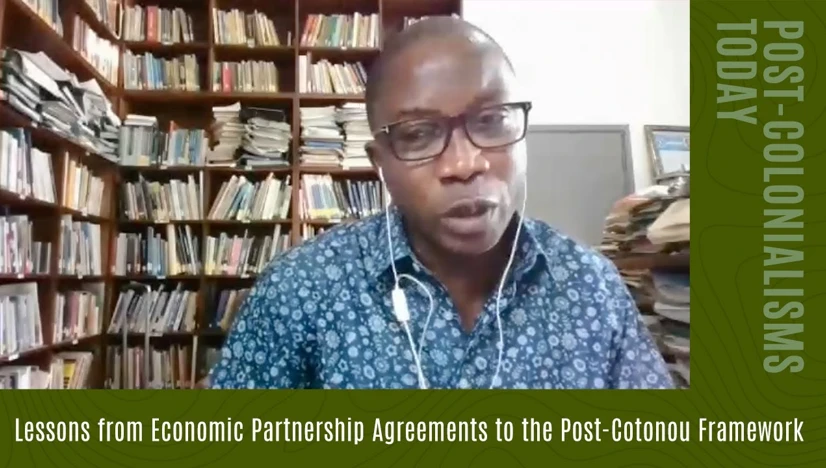Lessons From Economic Partnership Agreements to the Post- Cotonou Framework
Post-Colonialisms Today: postcolonialisms.regionsrefocus.org, 2020
Yao Graham, coordinator of Third World Network- Africa, reflects on lessons learned from past Economic Partnership Agreements (EPAs), specifically as they relate to the Post-Cotonou Agreement, an expansive trade and development agreement being negotiated between African, Caribbean and Pacific (ACP) regions and the European Union (EU). EPAs have worked to halt the possibility of African economies fully regaining control of their natural resources by pushing harmful liberalization policies, which mainly benefit the EU at the expense of ACP economies. EPAs are a tactic often employed by the EU as a means of securing their interests, such as the 2008 raw materials initiative that pushed for an open global market at the expense of developing countries that have abundant natural resources. Policies like this further destabilize nations still recovering from colonization.
Comment from our editors:
This presentation is an excerpt from Post-Colonialisms Today’s webinar, “Lessons from the Decolonization Era for Contemporary Struggles around Natural Resource Sovereignty.”
Go to: Lessons From Economic Partnership Agreements to the Post- Cotonou Framework

